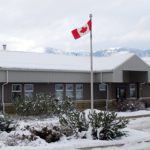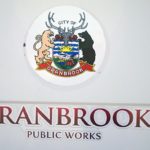Home »

Enjoy the long weekend and stay safe out there

As the weather continues to warm up in many parts of the province, British Columbians are being urged to do their part to prevent human-caused wildfires and help keep communities safe.
“I hope British Columbians enjoy the Victoria Day long weekend, but I also encourage them to use caution with any activity that could spark a wildfire,” said Katrine Conroy, Minister of Forests, Lands, Natural Resource Operations and Rural Development. “Human-caused fires are completely preventable and can unnecessarily divert firefighting resources from naturally occurring wildfires.”
From April 1 to May 19, 214 wildfires have burned about 2,147 hectares of land in British Columbia. Of those fires, 168 were caused by people (about 79%).
“One of the best ways for homeowners to deal with wildfire threats is to use FireSmart principles to help protect their property from fire damage,” said Jennifer Rice, Parliamentary Secretary for Emergency Preparedness. “I encourage everyone to support BC Wildfire Service crews by learning what they can do around their own homes to reduce wildfire risks.”
Get FireSmart
* Mitigating wildfire risk is a shared responsibility. The Victoria Day long weekend is a great opportunity for homeowners to undertake FireSmart activities to reduce wildfire threats on their own property.
* Many of these activities are relatively quick and easy to do, from ensuring leaves and needles are cleared from gutters, to cutting back overgrown vegetation and trimming low-hanging tree branches.
* FireSmart methods are backed up by research that has repeatedly demonstrated that using FireSmart principles can reduce the risk of property damage under even the most extreme fire conditions.
* The FireSmart Begins at Home manual (which includes a risk assessment checklist) is available online.
* The Get FireSmart podcast, produced by FireSmart BC, is a new way to listen to tips and insights from FireSmart professionals in B.C. and elsewhere. Launched in April, it’s available through podcast providers, such as Spotify and Apple.
Here are some other fire safety tips to keep in mind:
Campfires:
* If campfires are allowed where you are, remember that they must not be larger than 0.5 metres high or 0.5 metres wide.
* Never light a campfire or keep it burning in windy conditions. Weather can change quickly, and wind may carry embers to other combustible material.
* Maintain a fireguard around your campfire. This is a fuel-free area where all flammable materials (grass, leaves, kindling, etc.) have been removed right down to the soil.
* Never leave a campfire unattended.
* Have a shovel or at least eight litres of water available to properly extinguish the campfire.
* Make sure the ashes are cool to the touch before leaving the area for any length of time.
Additional precautions:
* Anyone riding an all-terrain vehicle on or within 300 metres of forested land or rangeland must have a spark arrestor installed on the vehicle. To help reduce wildfire risks, check the condition of the muffler, regularly clear build-ups of grass or other vegetation from hot spots, stay on dirt paths and avoid tall grass and weeds.
* Smokers must dispose of cigarette butts and other smoking materials responsibly, ensuring they are completely extinguished.
To report a wildfire, unattended campfire or open burning violation, call 1 800 663-5555 toll-free or *5555 on a cellphone.
Anyone found in contravention of an open-burning prohibition may be issued a violation ticket for $1,150, may be required to pay an administrative penalty of up to $10,000 or, if convicted in court, may be fined up to $100,000 and/or sentenced to one year in jail. If the contravention causes or contributes to a wildfire, the person responsible may be ordered to pay all firefighting and associated costs.
Travel restrictions for non-essential travel in B.C. are in place until Tuesday, May 25, to stop the spread of COVID-19 and variants of concern. Fines can be given to people who leave their region for non-essential travel. Stay local and stay in your community. Do not travel for non-essential reasons. More information is available online.
The BC Wildfire Service has implemented safety protocols and strategies to minimize COVID-19 exposure risks to its personnel and to communities. Its personnel adhere to public health orders and guidelines to ensure firefighting operations can continue safely throughout the province.
e-KNOW file photos
e-KNOW








